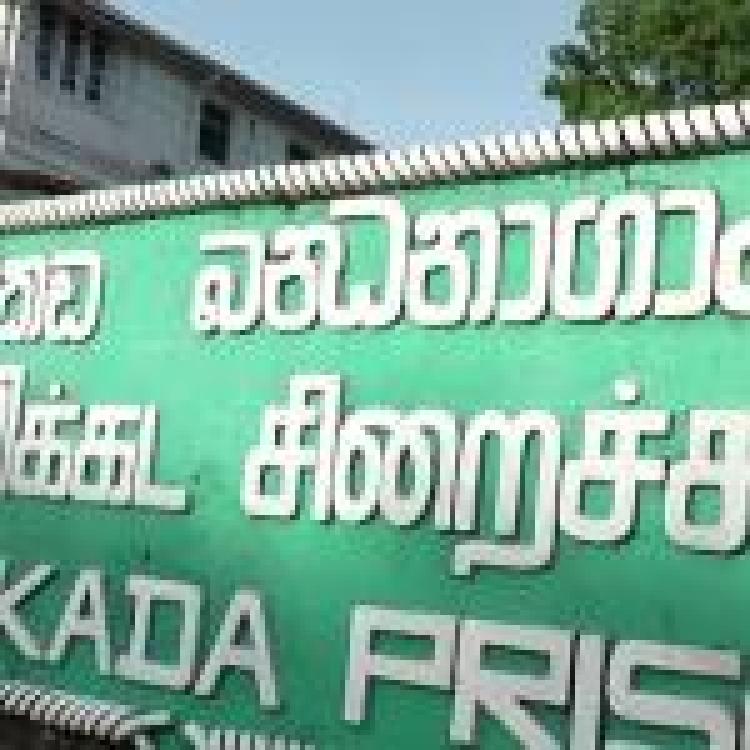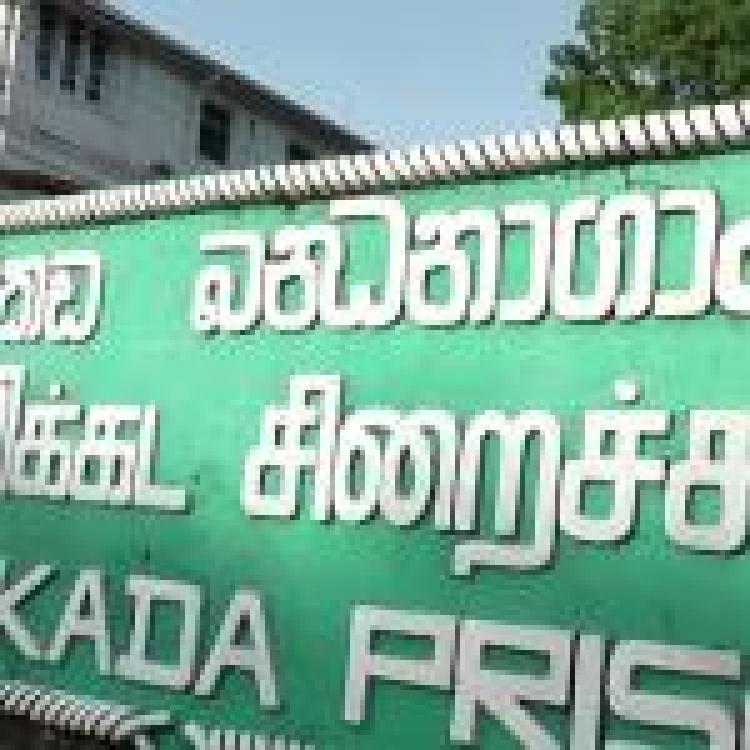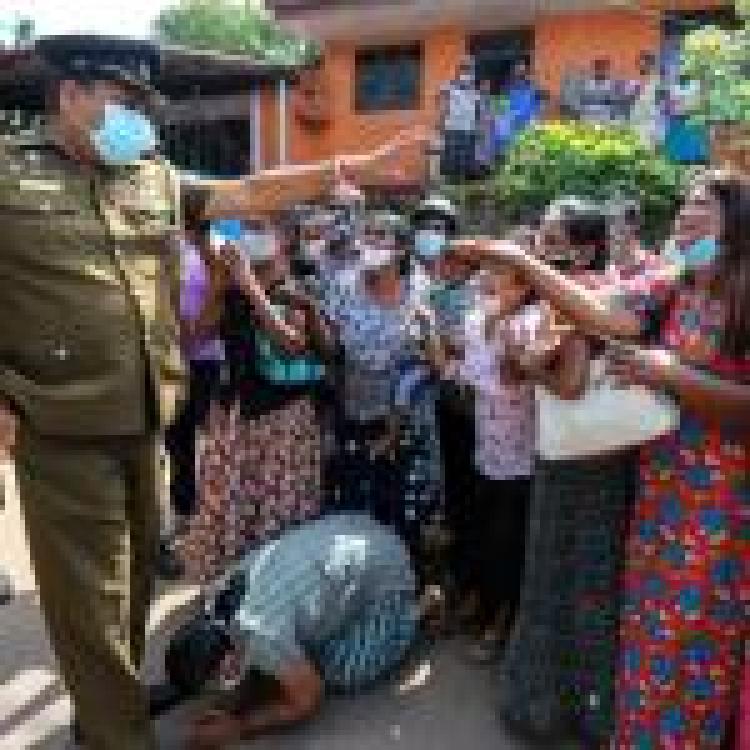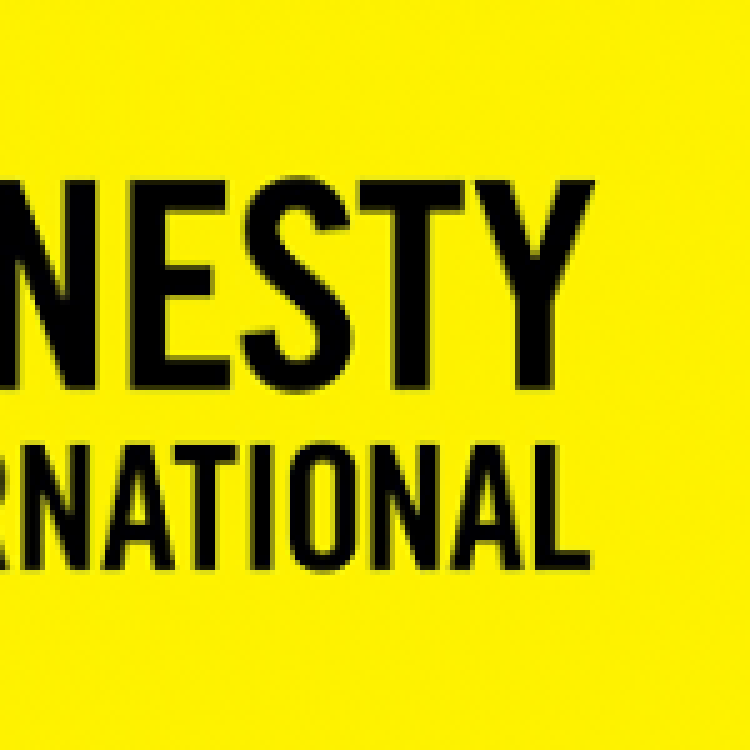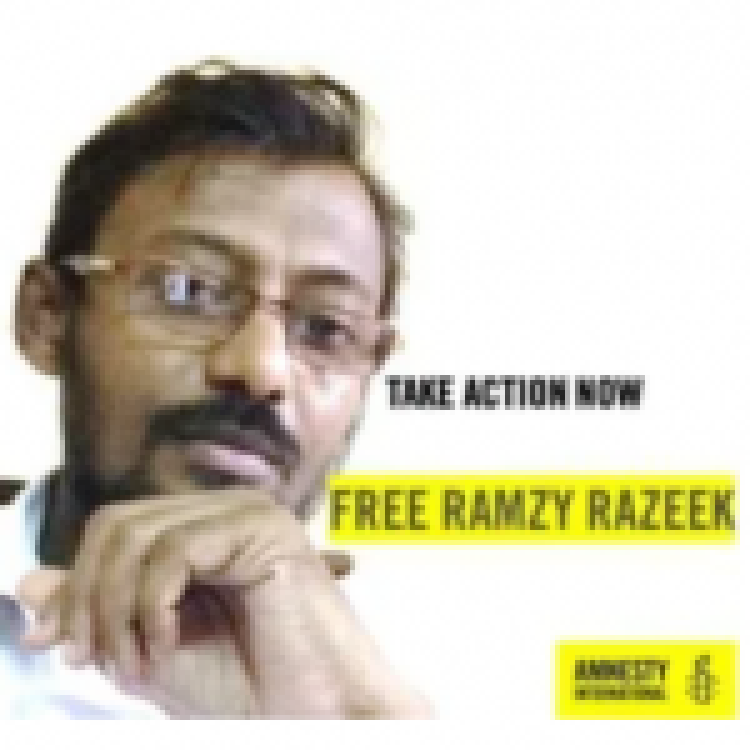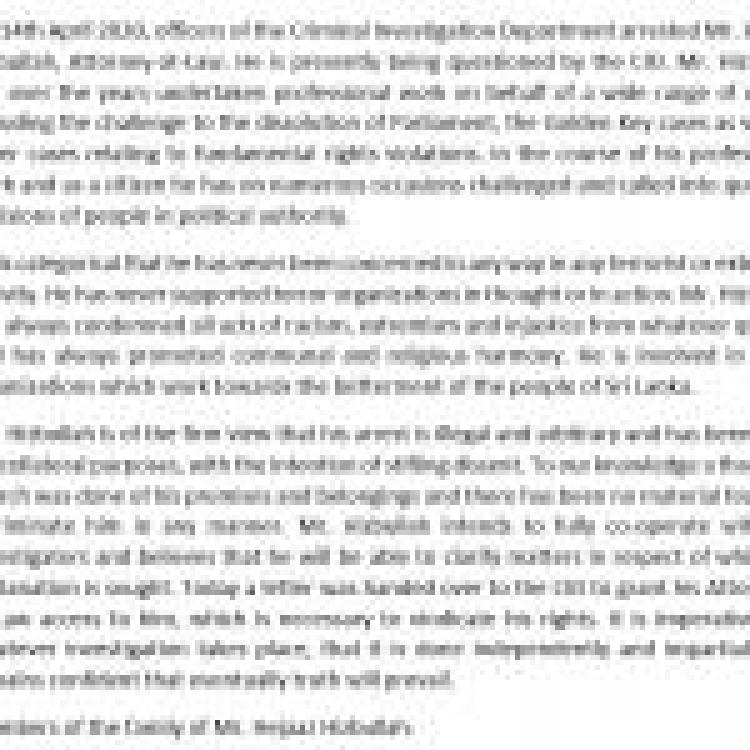Amnesty International has called on the Sri Lankan government to “implement their commitments to release hundreds of detainees to ease overcrowding and improve prison conditions” amidst the growing threat of COVID-19 across prisons, and also called for an investigations into a prison fire started by Sri Lankan police officers opening fire, at the end of last month at Mahara Prison Complex.
In their statement, the human rights group stated:
“In the immediate term, there must be a thorough and impartial investigation into this incident and the use of lethal force – including firing live ammunition – by prison authorities.”
In addition to that, Amnesty International called on Sri Lankan authorities to release inmates to ease overcrowding and “immediately and unconditionally release all prisoners detained solely for the peaceful exercise of their human rights”.
Concerns have been raised internationally over unlawful arrests of activists, human rights defenders, and high-profile human rights lawyers including the blogger Ramzy Razeek , the lawyer Hejaaz Hizbullah and the ongoing criminal investigation against writer Shakthika Sathkumara.
Last week, a Sri Lankan government spokesperson claimed that there are no Tamil political prisoners as “those arrested in the North and East are detained under the Prevention of Terrorism Act on terrorism charges and cannot be deemed as political prisoners”.
Despite promises to release Tamil political prisoners, the government has failed to release these prisoners – who with the added struggle of prison overcrowding amidst COVID-19 and the violence by prison authorities – are continuing to die without reprieve. Earlier this year, Sellapillai Mahendran, the longest-serving Tamil political prisoner died in prison.
Amnesty International warned that failure to go through with their commitments to release detainees to prevent overcrowding, “could see more infections, more prisoner unrest, and a greater likelihood of further violence”.
They reiterated that the commitments needs to be fulfilled and that “all prisoners [should] enjoy the same standards of health care that are available in the community, including testing, prevention and treatment for COVID-19”.
Amnesty International highlighted that the incident at the Mahara Prison Complex – where at least eight prisoners were killed and more than 50 others injured – is the third occurrence this year that lethal force has been employed by Sri Lankan police officers in prisons since the beginning of the COVID-19 pandemic. They emphasised that:
“Prison authorities must ensure an end to the use of unlawful and excessive force against prisoners agitating against their detention conditions during the outbreak of COVID-19 within prisons and ensure that force is only ever used against prisoners where it is strictly necessary and proportionate to a legitimate objective.”
Read more here.

